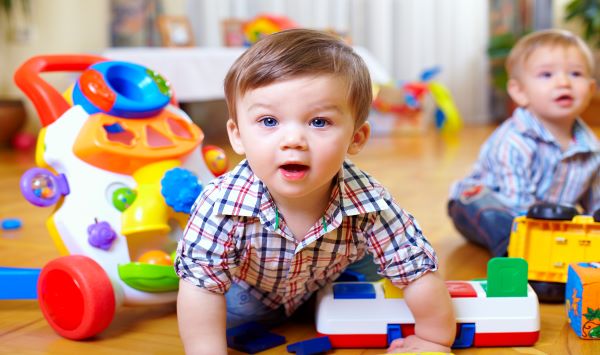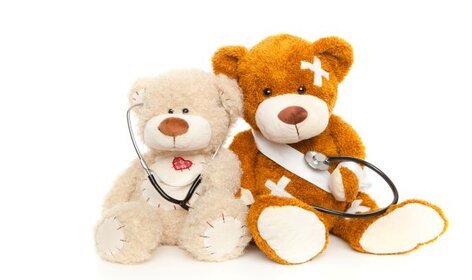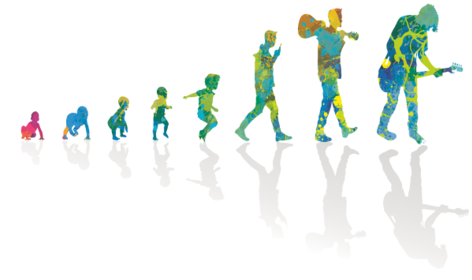Choking and suffocation - first aid for children
Pediatrics(07.03.2025) Small parts such as button batteries, scraps of tissue or peanuts can be dangerous for babies and small children. What should be considered?
When children explore the world, they do so with all their senses - including their mouths. This behavior is normal and usually harmless. "However, a problem can arise if the child accidentally swallows the foreign body and gets it into the esophagus, or aspirates it and it gets into the windpipe," says PD Dr. Ulrike Teufel-Schäfer, Head Senior Physician of the Pediatric Gastroenterology and Hepatology Section of the Department of Pediatrics and Adolescent Medicine at the Freiburg University Medical Center.

Young children are curious. Therefore, do not leave any objects that could be swallowed within their reach. ©Olesia Bilkei/Fotolia
Aspiration of foreign bodies:
Symptoms of foreign bodies in the windpipe include a sudden coughing fit or shortness of breath after playing with objects or eating nuts, for example. The child should be seen by a doctor immediately and, depending on the symptoms, the emergency services should be called if necessary.
How to act correctly in an emergency
Keep calm
If necessary, get your child out of a dangerous situation
Call the emergency services on 112 - ideally a second person should do this
Provide first aid
First aid for children over one year old:
Place the child over your thighs on your stomach
Tap the child 5 times with your open hand between his shoulder blades and stroke upwards. Hold the child's head with one hand. Ideally, the foreign body should then have come loose
If tapping between the shoulder blades has not helped, use the Heimlich grip. Get down on your knees behind the child and pass both arms under their arms. Make a fist, place it under the breastbone and strengthen it with the other hand. Then slowly pull your fist upwards
First aid for a baby or infant under one year old:
Lay the baby prone on one arm with the head towards your hand, the head should be the lowest point and held
Gently tap the ball of your hand between the shoulder blades 5 times
If the attempt is unsuccessful, turn the child over on your arm and press the breastbone 5 times with 2 fingers
If this is also unsuccessful, turn the child onto their stomach again and tap their back 5 times
Repeat these steps alternately until the emergency services arrive
Swallowed foreign bodies:
Typical symptoms of swallowed foreign bodies are increased salivation, difficulty swallowing, refusal to eat or recurrent vomiting. However, the symptoms can also be unspecific or, in rare cases, completely absent. Therefore, if a foreign body is suspected to have been swallowed, a doctor should always be consulted. The type of foreign body swallowed and its location in the gastrointestinal tract are decisive for the further course of action. For example, if a coin is lodged in the stomach, it can first be checked over the next few days to see whether it leaves the body via the normal route. In the case of sharp objects, on the other hand, endoscopic retrieval is performed if the foreign body is still in the oesophagus or stomach. A button cell battery in the esophagus is an emergency. Even if the batteries are "actually empty", there is still sufficient residual current and severe damage can quickly occur. Immediate presentation is required here.
Prevent dangers and avoid accidents
To prevent children from swallowing dangerous objects in the first place, "you should avoid potential sources of danger", says Teufel-Schäfer. Prevention is the best protection: for example, do not leave potentially dangerous objects such as household cleaners, batteries or snacks such as peanuts, grapes or similar objects within the reach of children. Similarly, young children should not play with marbles or beads. If your child has swallowed a foreign body, please contact a doctor and do not allow them to eat or drink until it is clear whether intervention is necessary.
More interesting articles
University Medical Center Freiburg
Central InformationPhone: 0761 270-0
info@uniklinik-freiburg.de
Corporate Communications
Breisacher Straße 15379110 Freiburg
Phone: 0761 270-84830
kommunikation@uniklinik-freiburg.de



